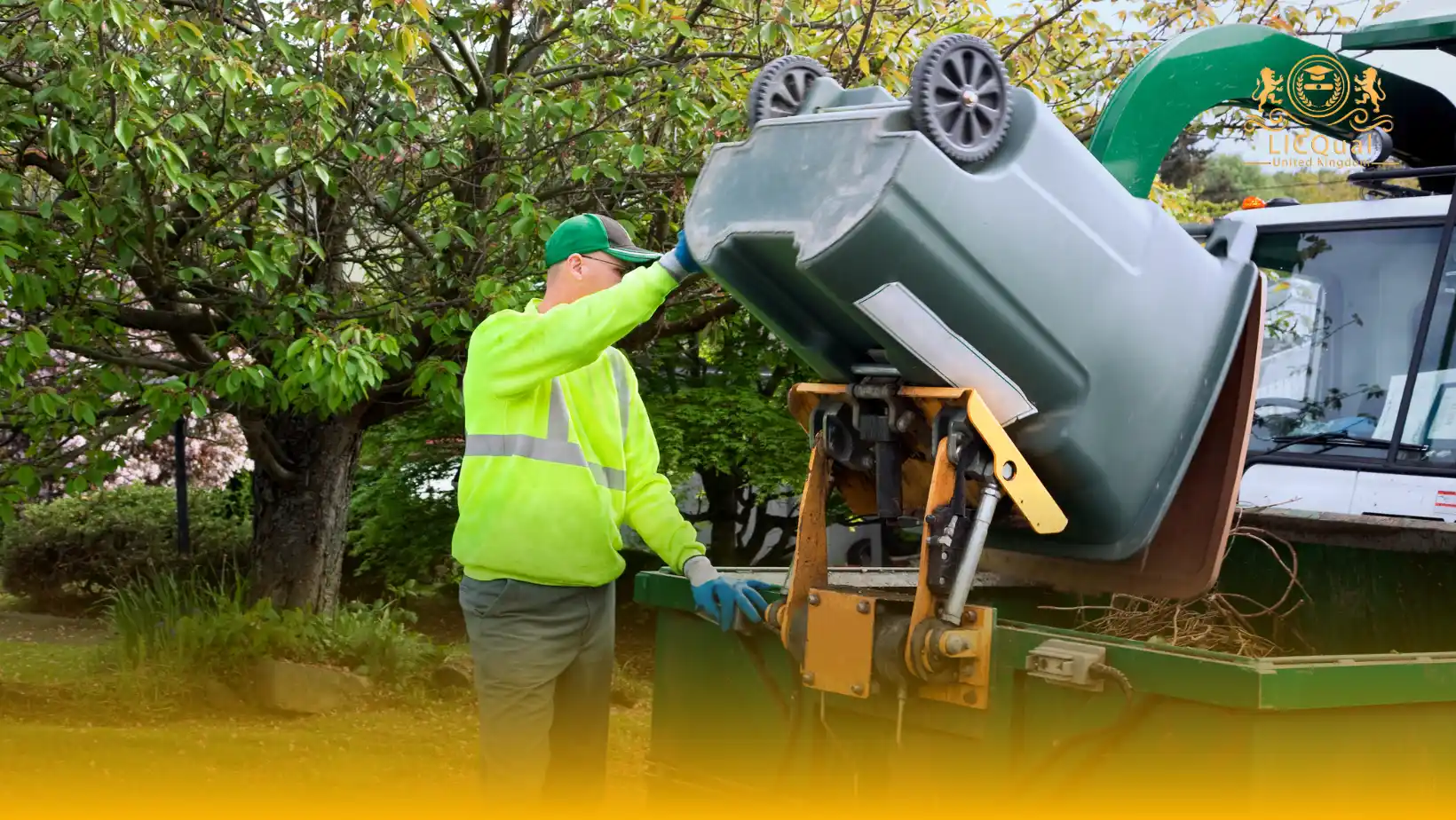Waste Management
The LICQual Level 3 Diploma in Waste Management is an internationally recognized qualification designed to provide learners with advanced knowledge in sustainable waste management. This accredited program equips learners with the skills required to manage waste responsibly, comply with environmental regulations, and contribute to a cleaner, greener future.
This Level 3 diploma is ideal for learners working in environmental services, recycling, health and safety, or those aiming to advance their careers in the waste management sector. Learners gain expertise in solid waste disposal, recycling techniques, hazardous waste handling, and strategies for environmental sustainability. Completing this diploma enables learners to implement effective waste reduction measures while ensuring compliance with international standards.
With flexible study options, the LICQual Level 3 Diploma in Waste Management allows learners to balance professional responsibilities with certification. Beyond technical knowledge, learners also develop leadership, decision-making, and strategic skills, making them highly valued by employers in government, private organizations, and NGOs committed to sustainability.
Course Overview
Qualification Title
LICQual Level 3 Diploma in Waste Management
Total Units
6
Total Credits
60
GLH
240
Qualification #
LICQ2201240
Qualification Specification
To enroll in the LICQual Level 3 Diploma in Waste Management, applicants must meet the following criteria:
|
Qualification# |
Unit Title |
Credits |
GLH |
|---|---|---|---|
|
LICQ2201240-1 |
Principles of Waste Management and Sustainability |
10 |
40 |
|
LICQ2201240-2 |
Waste Collection, Transportation, and Disposal Techniques |
10 |
40 |
|
LICQ2201240-3 |
Hazardous Waste Management and Environmental Compliance |
10 |
40 |
|
LICQ2201240-4 |
Recycling, Resource Recovery, and Circular Economy |
10 |
40 |
|
LICQ2201240-5 |
Waste Management Policies, Regulations, and International Standards |
10 |
40 |
|
LICQ2201240-6 |
Professional Development in Waste Management and Environmental Leadership |
10 |
40 |
By the end of this course, learners will be able to:
1. Principles of Waste Management and Sustainability
- Explain the fundamental principles of waste management and sustainability
- Apply the waste hierarchy (reduce, reuse, recycle, recover, dispose) in practical scenarios
- Identify the environmental, social, and economic impacts of poor waste management
- Demonstrate knowledge of global sustainability goals and their link to waste management
- Evaluate strategies for sustainable waste reduction and resource efficiency
2. Waste Collection, Transportation, and Disposal Techniques
- Demonstrate understanding of modern waste collection systems and logistics
- Apply safe and efficient waste transportation methods in compliance with regulations
- Compare and evaluate different waste disposal techniques and their environmental effects
- Implement cost-effective waste handling procedures in line with industry standards
- Assess the role of technology in improving waste collection and disposal efficiency
3. Hazardous Waste Management and Environmental Compliance
- Identify and classify hazardous waste materials according to international standards
- Apply safe procedures for handling, storage, and treatment of hazardous waste
- Conduct risk assessments to minimize environmental and health hazards
- Demonstrate knowledge of environmental compliance and legal frameworks
- Develop strategies for safe hazardous waste disposal and pollution prevention
4. Recycling, Resource Recovery, and Circular Economy
- Explain the principles of the circular economy and its role in waste management
- Apply recycling and resource recovery techniques to reduce landfill dependency
- Evaluate the economic and environmental benefits of recycling initiatives
- Design strategies to promote sustainable resource management in organizations
- Assess the role of innovation in advancing recycling and waste-to-energy solutions
5. Waste Management Policies, Regulations, and International Standards
- Interpret waste management laws, policies, and regulatory frameworks
- Apply international waste management standards in professional practice
- Ensure compliance with environmental legislation and sustainability goals
- Assess the impact of government policies on waste management systems
- Recommend improvements to align with global environmental best practices
6. Professional Development in Waste Management and Environmental Leadership
- Develop leadership and decision-making skills in waste management operations
- Apply professional ethics and environmental responsibility in practice
- Lead teams in implementing waste reduction and sustainability initiatives
- Communicate effectively with stakeholders, regulators, and communities
- Build a career pathway as an industry-recognized waste management professional
The LICQual Level 3 Diploma in Waste Management is designed for a wide range of learners who are passionate about sustainability, environmental protection, and professional growth.
- Environmental and waste management professionals seeking advanced knowledge and career growth.
- Individuals currently working in waste collection, recycling, or disposal services.
- Supervisors and managers aiming to strengthen compliance, sustainability, and operational efficiency.
- Professionals seeking an internationally recognized waste management qualification.
- Employees responsible for implementing waste reduction strategies in organizations.
- Practitioners looking to enhance technical knowledge in waste handling, disposal, and hazardous materials.
- Health, Safety, and Environmental (HSE) officers wanting to expand expertise into waste management.
- Career changers or new entrants passionate about environmental protection and sustainability.
- Graduates seeking a practical qualification to enter the waste management industry.
- Government or regulatory staff involved in municipal services, policy enforcement, or environmental compliance.
- Employees tasked with aligning workplace practices with international environmental standards.
- Corporate and industry professionals managing waste streams, sustainability programs, or circular economy initiatives.
- Managers and industry leaders aiming to improve compliance, CSR, and organizational sustainability.
- Learners seeking flexible, globally recognized online qualifications in environmental and waste management.
Assessment and Verification
All units within this qualification are subject to internal assessment by the approved centre and external verification by LICQual. The qualification follows a criterion-referenced assessment approach, ensuring that learners meet all specified learning outcomes.
To achieve a ‘Pass’ in any unit, learners must provide valid, sufficient, and authentic evidence demonstrating their attainment of all learning outcomes and compliance with the prescribed assessment criteria. The Assessor is responsible for evaluating the evidence and determining whether the learner has successfully met the required standards.
Assessors must maintain a clear and comprehensive audit trail, documenting the basis for their assessment decisions to ensure transparency, consistency, and compliance with quality assurance requirements.

